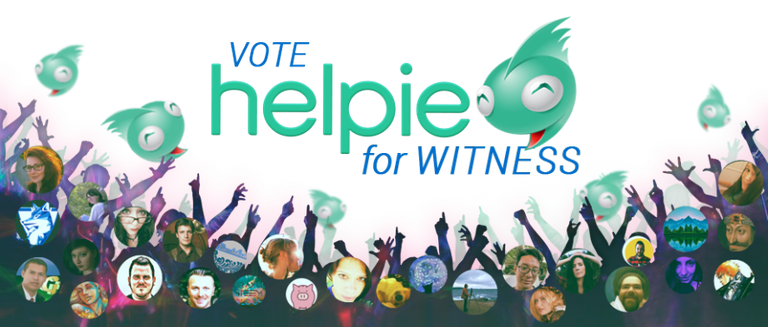Echoing Images
Let's talk about sound first; we all know that images can't echo for the simple fact that "echo" is produced by the reflection of sound, not light. The world model that's constructed in our minds is based upon sensory inputs, mainly from the eyes and ears, to create the conscious experience of the self in the universe.

source: PxHere
The conscious mind is a wonder to behold, but it's audience is eternally limited to just one person, and that's you, dear reader. You are the only person in the entire universe who knows what it's like to be you. I can try to explain what it was like for me to go on a roller-coaster for the first time, and due to the similarities between roller-coasters and the ironclad nature of the laws of physics and the probability that you also have been on a roller-coaster sometime in the past, I will be successful in doing that to a degree, but my experience is unique to me, as is yours to you. We can imagine what it's like to be a soldier in the Great War, but we'll never know what it's like to be one or to have been one. It's this strictly subjective nature of consciousness that makes it such a difficult phenomenon for science to handle.
There is no doubt that there's a strong correlation between the physical body and brain and our subjective experience and objective behavior; the basic fact that damage to certain parts of the brain results in predictable changes in it's functioning is strong evidence for that. We can now literally see the changes in our brain's connectome when it's subjected to immersive experiences or training; we can see the neuroplasticity in action, which underlines the strong correlation between the physical and the mental. But correlation is not causation, not necessarily. As said previously, it's not clear at all if our subjective conscious experiences are caused solely by our physical brains, or, put more generally, what precisely is the nature of the interaction between the physical brain and the non-physical conscious experience.
The world model that's constructed by our minds is strictly personal and mostly fake; we don't experience reality as it is, but how our minds present it to us. As science progresses and dives deeper and deeper into the basic building blocks of our physical universe, and zooms out further to understand the scope and history of it, it becomes clear that reality would overwhelm us if we were to perceive it as it actually is. Our mental model of the world we inhabit is shaped such that we're best able to survive in that world; each creature develops a world model that's conducive to that creature's survival, that attracts it to stuff that's good and makes it fear and flee from stuff that's bad, like food and predators respectively. The model allows us to avoid obstacles and to not fall from a cliff, to hunt for and target prey... The best description of our mental model I've heard is to compare it to the desktop-icons on your PC screen; these icons are not the programs, the bits and bytes that are flipped on a machine-level that cause certain actions to be performed by the hardware. The icons hide all that complexity and present us with an easy clickable image that outputs the result we desire. We see the icons, not the programs.
Sound in the physical reality is nothing more than waves of compressed air, vibrations in some physical medium. It's only when these vibrations hit our cochlea in the inner-ear, that electrical signals are generated in response to that and transported to the brain where it interprets these signals into something we perceive as sound. Anywhere from 17,500 - 23,500 hair cells can be found in the human ear, enabling is to distinguish a fairly large spectrum of wavelengths, tones and timbres. But the most difficult thing this enables us to do is to interpret speech; this is why sound is essential in the construction of our mental world model, as we build each other's models through the power of communication and storytelling, the invocation of imagined mental images.
What Is It Like to Be a Bat?
But as we're slowly beginning to understand, all mental images are in a way imagined. Our minds greatest trick is to predict the model; the mind is a literal prediction-machine as it constantly compares sensory input with previous experiences, and fills in any blanks with what's most similar to those past experiences; this is why we all have cognitive biases as the brain automatically discards new information that contradicts past experiences, and this is also why it takes conscious effort to keep an open mind for ideas and opinions that go against your established world-view. We all have two blind spots, one in each of our eyes, yet our field of view is always uninterrupted; this is because our brain fills in the blind spots caused by the limitations of the physical "hardware." We're partially blind in time too. Try this: look in a mirror at your eyes, then move only your eyes to look slightly to one side. You'll see that you're unable to see your own eyes move in the mirror while they move. Only when when they stand still again and renew their focus, you can now see your eyes in their new position.
The conscious experience of existing in the universe is a miracle that's yet to be understood by us mere mortals. One of the best thought experiments on this subject that I know of is Nagel's paper What Is it Like to Be a Bat?:
Nagel uses the metaphor of bats to clarify the distinction between subjective and objective concepts. Bats are mammals, so they are assumed to have conscious experience. Nagel used bats for his argument because of their highly evolved and active use of a biological sensory apparatus that is significantly different from that of many other organisms. Bats use echolocation to navigate and perceive objects. This method of perception is similar to the human sense of vision. Both sonar and vision are regarded as perceptional experiences. While it is possible to imagine what it would be like to fly, navigate by sonar, hang upside down and eat insects like a bat, that is not the same as a bat's perspective.
source: Wikipedia
Our brain interprets vibrations through air as sound, or as music when said vibrations are produced with a rhythm and a melody. We usually don't "see" sound (I say "usually" because there are cases of synesthesia, the involuntary "melding" of sensory inputs). Since a bat uses auditory output and input to navigate it's physical surroundings, it's reasonable to assume that bats see with their mouths and ears. How good of a "picture" can a bat's mind produce in the bat's own experience? It's reasonable to assume it can distinguish hard surfaces from soft surfaces, liquids from solids, moving from stationary, but is it unreasonable to assume that this ability has evolved to such a degree that the bat is able to distinguish between colors? No matter how much or how little we assume about the bat's abilities to construct a model of it's surroundings, we'll never know what it's like to be a bat, unless it's in a previous or next life...
If you have the time, here's the conversation that inspired me to write today's post, "Indre Viskontas on Music and the Brain", which I highly recommend:
Indre Viskontas on Music and the Brain
Thanks so much for visiting my blog and reading my posts dear reader, I appreciate that a lot :-) If you like my content, please consider leaving a comment, upvote or resteem. I'll be back here tomorrow and sincerely hope you'll join me. Until then, keep steeming!

Recent articles you might be interested in:
| Latest article >>>>>>>>>>> | Why 70 Is So Important |
|---|---|
| The Price Of Liberty | Ariel Got A Tan |
| Democracy For Sale | Desirable Incarceration |
| Would You Like To Know More? | Kildall & Kramer |

Thanks for stopping by and reading. If you really liked this content, if you disagree (or if you do agree), please leave a comment. Of course, upvotes, follows, resteems are all greatly appreciated, but nothing brings me and you more growth than sharing our ideas. It's what Steemit is made for!


Just for Full Disclosure, I'm invested in these crypto-currencies:
Bitcoin | Litecoin | EOS | OmiseGo | FunFair | KIN | Pillar | DENT | Polymath | XDCE | 0x | Decred | Ethereum | Carmel | XYO

@helpie is a WITNESS now! So please help @helpie help you by voting for us here!

I very much enjoyed this read. Philosophy, physics, musik, all subjects that I'm fascinated with. ... Science in general.
Thanks for the excellent article. I look forward to reading the Visconta piece that you've recommended.
🎶
Posted using Partiko Android
I'm glad you liked it @anaclark :-) Thanks so much for stopping by!
Congratulations! Your post has been selected as a daily Steemit truffle! It is listed on rank 19 of all contributions awarded today. You can find the TOP DAILY TRUFFLE PICKS HERE.
I upvoted your contribution because to my mind your post is at least 4 SBD worth and should receive 205 votes. It's now up to the lovely Steemit community to make this come true.
I am
TrufflePig, an Artificial Intelligence Bot that helps minnows and content curators using Machine Learning. If you are curious how I select content, you can find an explanation here!Have a nice day and sincerely yours,

TrufflePigYes, the sound is maybe the biggest influencer of your mind. We can hear so much more than we can see, and sounds can also localize were there something we should look at.
Thanks so much for visiting my blog, it's much appreciated! I don't know if we can hear more than we can see... The mind works in mysterious ways after all ;-)
Yes, it truly does!
Posted using Partiko iOS
This post has been selected for curation by @msp-curation by @clayboyn and has been upvoted and will be featured in the weekly philosophy curation post. It will also be considered for the official @minnowsupport curation post and if selected will be resteemed from the main account. Feel free to join us on Discord!
Hi @zyx066!
Your post was upvoted by @steem-ua, new Steem dApp, using UserAuthority for algorithmic post curation!
Your UA account score is currently 3.510 which ranks you at #6317 across all Steem accounts.
Your rank has improved 14 places in the last three days (old rank 6331).
In our last Algorithmic Curation Round, consisting of 181 contributions, your post is ranked at #83.
Evaluation of your UA score:
Feel free to join our @steem-ua Discord server
Very good text by you. I feel addressed, because I fish in similar waters as you. Nagel immediately reminded me of Humberto Maturana and of the systemicists and cyberneticists I met in the course of my research. All of them, of course, via the Internet, initialized by my last training. Where I first heard about eight years ago about systemics and cybernetics (which I thought had something to do with science fiction or robotics, but far from it). Heinz von Förster was one of the better known Germans, a funny old man, you can find a few videos about him. Very exciting interviews. I remember Gregory Bateson and some others I don't mention here.
The idea of us constructing our reality is very logical in my opinion. But only since I heard from it! Laughter! When you think about memories, you notice that they are never really clear and detailed and that memories are in reality only seconds of pictures, sounds or smells, little triggers that give us a certain feeling and an impression. Just as you say, our brain constantly matches its memories: known or unknown, and prefers what it knows.
We don't see gorillas in the middle of a handball playing group!
Such things slowly but surely become general knowledge and so we have to admit for better or for worse that not only the others have prejudices, but oneself. The Buddhists have known this for a long time, even the legendary figures from the occidental tradition.
Reality as it "really is" can never be conveyed as such on the whole, because the perspectives of the countless other living beings who share the planet with us do not rank on our scale of perception. That's why I always find it nice to ask people about perspectives like the one of the bat or what the grass on which one walks "thinks"? We will never experience it in our human form.
I hope more people read this blog from you.
And another excellent response by you my friend, thank you! :-) That experiment with the Gorilla is just amazing when seen for the first time, or should I say: when NOT seen for the first time? ;-)